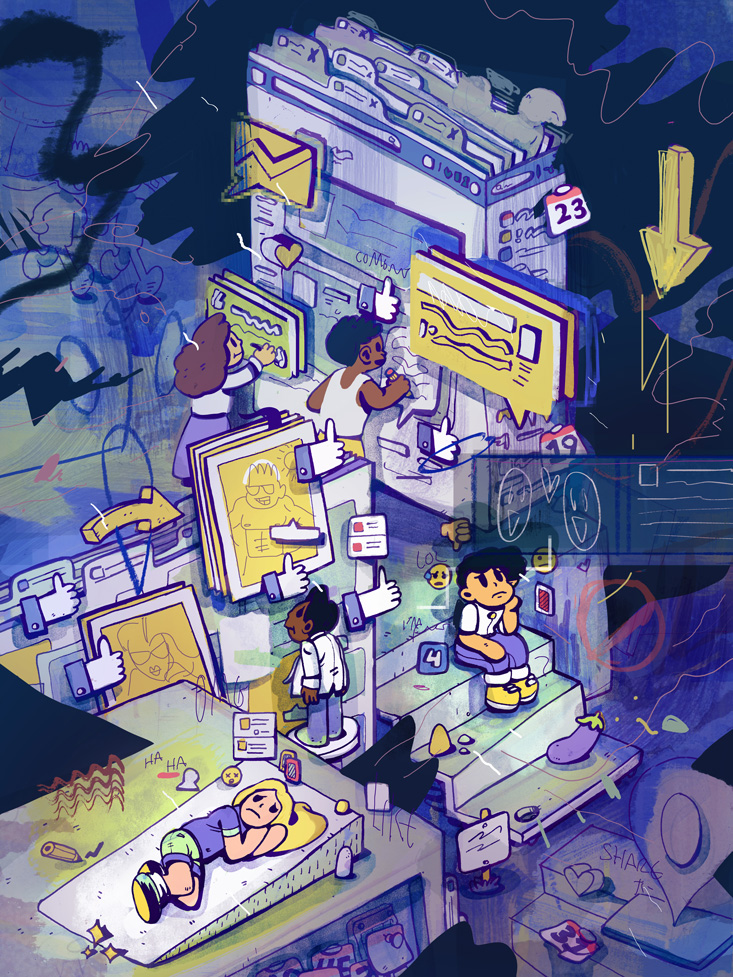TL;DR: Passive participation in Facebook is correlated with a drop in mood.
Perhaps the most intriguing finding in the recent literature, however, is that people do themselves the most harm when they’re not posting. [Experimenters] instructed half of the subjects to use Facebook actively and half to use it passively. Active use is “posting status updates, chatting, responding to a comment,” Verduyn explains, while passive use is “scrolling through news feeds, looking at pictures, and looking at status updates.”
A few hours after the session, the active users felt the same, yet the passive users felt a drop in mood. “When you’re just passively using Facebook, you develop more feelings of envy, which in turn lead people to feel worse over time,” Kross says.
On the one hand, the finding is a good thing. It means that there’s a way to escape the Facebook blues without losing access to social media’s positive benefits: Be more active.
…The growing body of research on social media’s dark sides, Krasnova says, gives us the chance to build a new social media etiquette, one that will reattach the world of Facebook to reality and pay off in true friendships, full of both the costs and the benefits of caring.

